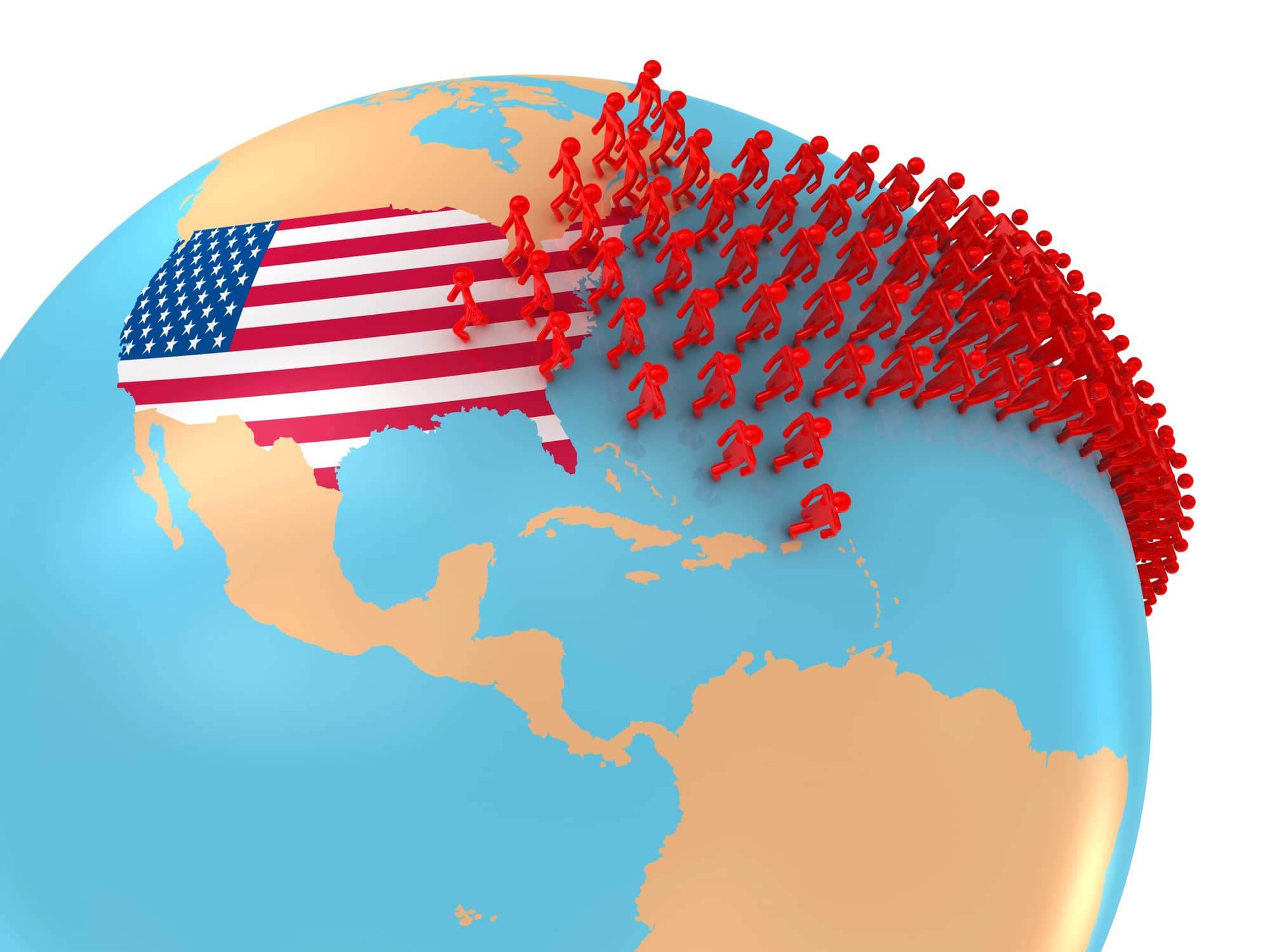President Donald Trump claimed in a statement that his tariffs would help with “the major threat of illegal aliens.” This is a puzzling claim. While it might be true that tariffs can be used as a tool for negotiations with Mexico, immigration control and trade barriers are contradictory policies. Tariffs increase the incentive to immigrate—illegally immigrate.
In his 1998 paper “The Case for Free Trade and Restricted Immigration,” economist Hans-Hermann Hoppe wrote:
“The relationship between trade and migration is one of elastic substitutability (rather than rigid exclusivity): the more (or less) you have of one, the less (or more) you need of the other. Other things being equal, businesses move to low wage areas, and labor moves to high wage areas, thus effecting a tendency toward the equalization of wage rates (for the same kind of labor) as well as the optimal localization of capital. With political borders separating high- from low-wage areas, and with national (nation-wide) trade and immigration policies in effect, these normal tendencies—of immigration and capital export—are weakened with free trade and strengthened with protectionism. As long as Mexican products—the products of a low-wage area—can freely enter a high-wage area such as the U.S., the incentive for Mexican people to move to the U.S. is reduced. In contrast, if Mexican products are prevented from entering the American market, the attraction for Mexican workers to move to the U.S. is increased. Similarly, when U.S. producers are free to buy from and sell to Mexican producers and consumers, capital exports from the U.S. to Mexico will be reduced; however, when U.S. producers are prevented from doing so, the attraction of moving production from the U.S. to Mexico is increased.”
Either production or labor move. Tariffs decrease the benefit of outsourcing production to another country; therefore, companies settle for producing domestically. Given that domestic production increases as outsourcing decreases, domestic wages increase relative to foreign wages, ceteris paribus. Some immigrants are spurred to immigrate by the higher domestic wages in protected industries.
Essentially, a company can either relocate their capital overseas to take advantage of lower foreign wages, or labor can relocate to take advantage of higher domestic wages. When foreign trade is restricted by tariffs, then the labor tends to migrate. Put differently: labor and capital migration are substitutes. When the cost of capital migration increases via tariffs, the demand for the other increases.
A trade war—one in which the United States drastically increases tariffs—will only exacerbate illegal immigration. As wages for protected industries rise, the motivation to immigrate to the U.S. will increase. The U.S. immigration authorities will either be incapable or unwilling to accommodate this increased demand for legal immigration. Incapable because it is extremely difficult to legally immigrate and unwilling because of the hardline immigration stance of the present administration. Hence, tariff policy frustrates the national conservative policy of immigration control.
This insight by Hoppe can help national conservatives and free marketers come together. To free marketers, free trade allows for more mutually beneficial exchanges and expands the scope of competition to allow for higher quality products, lower prices, and increased innovation.
To the conservative nationalists, free trade eliminates one incentive to illegally immigrate. According to Hoppe:
“Insofar as a high-wage area such as the U.S. engaged in unrestricted free trade, internationally as well as domestically, the immigration pressure from low-wage countries would be kept low or reduced, and hence, the question as to what to do about immigration would be less urgent. On the other hand, insofar as the U.S. engaged in protectionist policies against the products of low-wage area and in welfare policies at home, immigration pressure would be kept high or even raised, and the immigration question would assume great importance in public debate.”
Tariff policy frustrates the national conservative policy of immigration control. How much illegal immigration can you attribute to trade restrictions? That is an open question, but the number is undoubtedly non-zero. National conservatives must reevaluate their priorities. Do they care more about dolling out protectionist privileges to their favored industries or do they care about restricting immigration?
If they care more about the latter, then they should abandon trade restrictions. Adopting free trade policies would help accomplish their goal of decreasing illegal immigration and would align them further with free market conservatives.
The quote often attributed to Frederic Bastiat that “when goods don’t cross borders, soldiers will,” has an interesting parallel here. When capital cannot cross borders, then labor will. The sooner that we all recognize this, the sooner that free trade can be adopted by contemporary conservatives and the severity of immigration pressure can be lessened.
Arguing against tariffs on the grounds that they encourage illegal immigration and by calling attention to the fact that the policies of free trade and free immigration are not necessarily connected are two indispensable steps in bringing about unity among the political right wing. We must recognize our common ground. Free marketers should lean into this argument more when engaging with national conservatives.
































